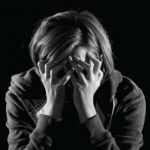SLE can lead to disruption in multiple areas of life, including work, participation in family and intimate relationships, and other interpersonal relationships. These effects on social interactions, combined with disease manifestations, such as pain, fatigue, cognitive impairment or changes in appearance, have been linked to psychological distress and depression.
Patricia P. Katz, PhD, professor in the Department of Medicine (Division of Rheumatology) and Philip R. Lee Institute for Health Policy Studies at the University of California San Francisco, will explore the social and psychological impact of SLE, and discuss potential coping and intervention strategies. Dr. Katz’s research has focused on the psychosocial impact of rheumatic diseases, particularly the relationship between disability and depression.
Donna Everix, PT, will wrap up the day with a discussion of effective nonpharmacologic management strategies. This session will provide strategies to deal with fatigue and deconditioning, such as sleep hygiene, modes, frequency and intensity of exercise, interval training, use of assistive devices and orthotics as well as novel technology applications to track symptoms and physical activity. Ms. Everix has been a physical therapist for almost 30 years, with experience in inpatient, private practice and home health settings, and specializes in orthopedics, rheumatology and aquatic therapy. She has been involved with the ARHP since 1987 and was awarded the Addie Thomas Service Award in 2015 for her commitment to the field of rheumatology.
For more information on the Clinical Focus Course and the 2017 ACR/ARHP Annual Meeting, click here.
Maura Iversen, BSc, PT, DPT, SD, MPH, is an associate editor of The Rheumatologist. She is also professor and chair of the Department of Physical Therapy, Movement and Rehabilitation Sciences at Northeastern University, a behavioral scientist in the Division of Rheumatology, Immunology, and Allergy at Brigham and Women’s Hospital, and a lecturer at Harvard Medical School, Boston.



